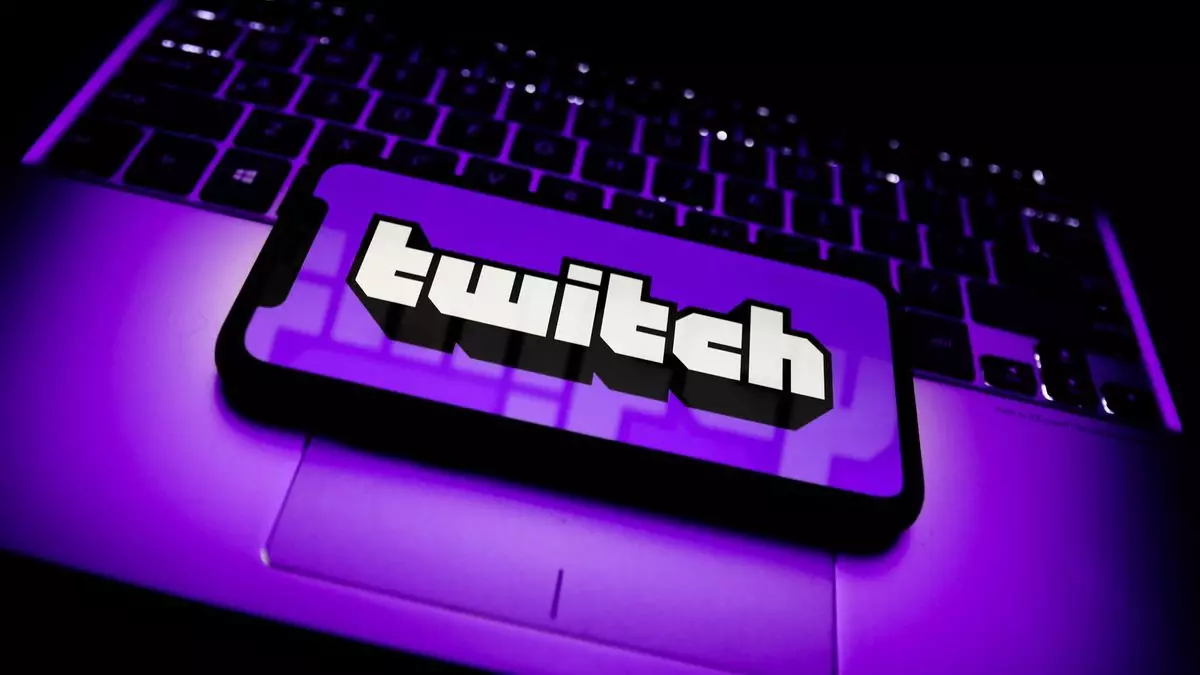Twitch, the popular live streaming platform, recently found itself ensnared in a web of controversy after introducing a new content classification rule for streams discussing “politics and sensitive social issues.” Less than a week following the rollout, Twitch was compelled to revise the policy in response to community pushback, particularly concerning the experiences of marginalized groups. This highlights the precarious balance Twitch must strike between addressing hate speech and fostering an inclusive environment for its diverse user base.
Initially, the content classification requirement dictated that streams addressing political or sensitive social issues must adhere to specific labeling guidelines. Surging concerns over internet discourse and the rise of hate speech—especially regarding recent events in Israel and Palestine—prompted this stringent policy. However, Twitch’s subsequent amendment aimed to clarify that streamers discussing their “lived experience” need not apply the classification label. This shift is well-intentioned, as it signifies an attempt to distinguish between personal narratives and politically charged discussions. Yet, it raises questions about the implementation and subjective interpretation that come with such distinctions.
The clarity provided in the updated guidelines offers a semblance of progress, suggesting that only streams with a focus on “polarizing or inflammatory” discussions would require a label. Even so, the ambiguity surrounding what constitutes a “polarizing” conversation remains unresolved. For instance, when does a streamer sharing their experience with reproductive rights veer into a political narrative? The subjectivity inherent in this distinction could lead to inconsistencies and further conflicts among users.
The reactions from Twitch’s community have been stark. LGBTQ+ streamers and their allies expressed indignation at the notion that their identity could be categorized as “political” simply by virtue of existing and sharing their experiences. Critics argue that defining their rights, experiences, and challenges as political issue sidelines the importance and validity of these conversations as essential human rights discussions.
The uproar surrounding Twitch’s initial policy sparked a massive response on Twitch’s UserVoice forum, gathering more than 38,000 votes from users calling for the removal of the previous classification criteria. The dialogue illustrates a critical view that labeling rights as political opens doors to prejudice and hostility towards marginalized groups. The subsequent clarification did little to mitigate fears that the streamers’ advocacy for simply existing or asserting their rights could lead to misinterpretation and backlash.
The decision of who determines what content is deemed “polarizing” poses significant implications for Twitch’s users. It invites speculation about bias in reporting and moderation. If right-leaning viewers interpret a trans person’s advocacy for their rights as inflammatory, they may use the platform’s reporting mechanisms to silence such dialogue. This power dynamic could further marginalize vulnerable communities already desperate for representation and understanding in predominantly white male spaces.
Twitch seemingly aims to combat hate speech through these policies, yet the rigidity of such classifications could inadvertently curb sincere expressions of identity and experience. As noted by streamer Austin “Gremloe” MacNamara, defining existence itself as political risks alienating the very users Twitch claims to support. The platform must grapple with redefining what it means to engage in discourse regarding sensitive issues while safeguarding the unique voices that make up its community.
The challenges Twitch faces are multifaceted and require nuanced solutions. A more effective strategy would involve fostering dialogues directly with marginalized communities to ascertain their perspectives on classification guidelines. Instead of imposing a top-down approach, collaboration could lead to a more equitable framework, ensuring that users can safely discuss essential issues without the threat of backlash.
Moreover, redefining the role of content moderation in addressing hate speech without encasing the rights of minority groups in a political veneer could pave the way for a healthier streaming environment. Twitch’s policy evolution demonstrates that a balancing act between community safety and advocacy for human rights is critical. Ultimately, the way forward depends on understanding and acknowledging the intersectionality of identity and its irreducibility to a mere political statement.
While Twitch’s intentions to improve the discourse on its platform are commendable, the reality is a complicated interplay of subjective interpretation, community standards, and the continued rise of prejudice. Only time will reveal whether these policy updates can genuinely lead to a more inclusive and respectful environment or if they will further entrench existing challenges.

